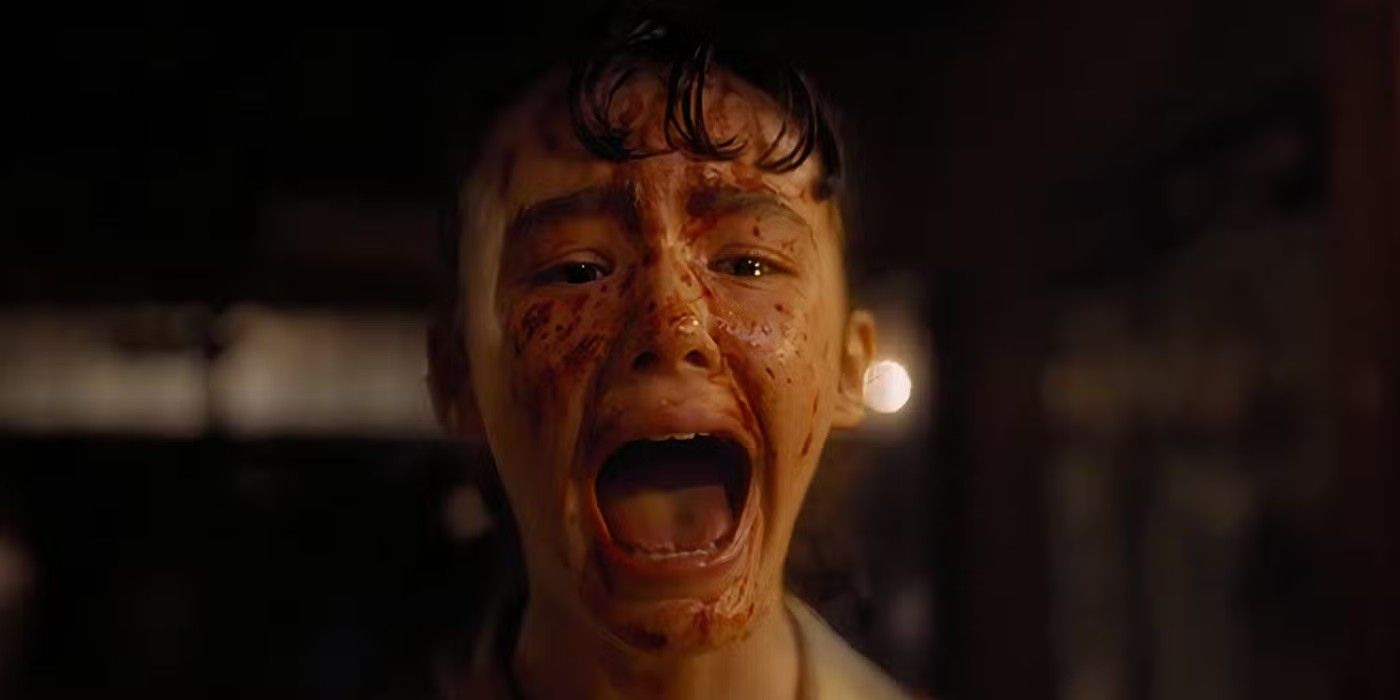Paolo Sorrentino's 'La Grazia' Dazzles Venice, Earns Raves

Paolo Sorrentino's latest drama, “La Grazia,” which opened the 82nd Venice Film Festival, was met with an enthusiastic four-minute standing ovation, underscoring the deep affection Italians hold for the Oscar-winning director. The film, starring Sorrentino's frequent collaborator Toni Servillo, tells the story of an aging fictional Italian President, Mariano De Santis, grappling with profound moral dilemmas in his final days in office. Sorrentino himself expressed his intention to portray a positive example of a politician, a stark contrast to the “impetuosity, show of force, and strange twisted ideas” often seen in current news, aiming to depict what a leader “should be like.”
Known for films like “The Great Beauty” and “The Hand of God,” Sorrentino's work typically bursts with baroque flamboyance, vibrant color, and intense emotional energy, often veering into what some might find messy or overstated. His previous film, “Parthenope,” was described as a “disaster of florid loose ends.” However, in “La Grazia,” Sorrentino takes a surprising and “ironically fastidious” turn, demonstrating a more “stoic and precise” approach. This new direction sees the director, often compared to a “made-for-TV version of Fellini,” pull himself together in a refined manner.
The film's central character, President Mariano De Santis, is meticulously brought to life by Toni Servillo, an acclaimed actor whose collaborations with Sorrentino include “The Great Beauty” and “Il Divo.” Servillo delivers a performance characterized by “meticulous and weirdly domineering passivity,” an “unsmiling minimalism” that presents a “poker face” to the world. At 66, he appears closer to 75, with a “dour,” “contained,” and “grimly patrician” face, almost “frozen with rectitude,” reminiscent of an aging banker or a priest whose faith has wavered. This formidable presence provides the focal point for a film built around his scrupulously formal hero.
De Santis is a widower and a devout Catholic, who views himself as a ceremonial leader, holding his power and his emotions “close to the vest.” Eight years after the death of his wife, Aurora, he remains deeply affected, missing her daily—a sign of his romantic nature but also his entanglement in the past. Finishing the last six months of his term, he governs on autopilot, having spent most of his career as a judge. His daily life in the presidential palace is managed by his daughter, Dorotea, who, as dry as her father, enforces healthy meals and attempts to curb his beloved cigarette habit, which he secretly indulges. Early in the film, he learns his nickname is “Reinforced Concrete,” posing the dramatic question of how to create a compelling narrative from such a stoic character.
Sorrentino skillfully navigates this challenge through Servillo's sly acting, cueing the audience to discern glimmers of thought and soul behind the president's facade. De Santis is not without his eccentricities, such as his fondness for Italian gangsta rap or an unexpected flirtation with a Vogue editor. A deeper obsession revolves around the lingering suspicion of his late wife's affair, which he persistently probes with their old friend, Coco. More significantly, “La Grazia” presents De Santis with weighty moral dilemmas that provide the film's understated pulse. He is pressured to support a euthanasia bill, yet his compassion clashes with his Catholic faith, leading the Pope to extract a promise against it. Concurrently, he must decide on the pardon petitions for two individuals who killed their spouses. These interlocked issues force De Santis to confront profound questions of life, death, and forgiveness, ultimately challenging his passive leadership.
The film's title, “La Grazia” (meaning “grace”), reveals its thematic core. It emerges as a parable for an era often defined by autocratic leaders, presenting De Santis as the antithesis—a leader whose problem stems from ruling with an “unforceful hand.” His moral journey involves being “coerced into taking a stand,” yet the film maintains a “bone-deep respect for the character’s inner reticence.” “La Grazia” is nostalgic for a time when leaders were devoted to their country and principles rather than megalomania, seeing themselves as part of a larger whole. While the movie is described as “staid” and not one to “set your pulse racing,” its meditation on leadership, faith, and personal integrity possesses a “hum of inspiration.”
The premiere of “La Grazia” served as a prestigious opening for the 82nd Venice Film Festival, which saw a host of A-list talent and significant cinematic events. Beyond Sorrentino’s acclaimed drama, the festival featured Francis Ford Coppola presenting Werner Herzog with a Golden Lion for Lifetime Achievement, marking Coppola's first public appearance since a heart procedure. Other anticipated premieres included Luca Guadagnino’s “After the Hunt,” Noah Baumbach’s “Jay Kelly,” Guillermo del Toro’s “Frankenstein,” and a new Yorgos Lanthimos-Emma Stone collaboration, “Bugonia.” Despite a joke by host Emanuela Fanelli about films being rejected by Cannes, and jury president Alexander Payne's avoidance of political questions regarding the Gaza war, the festival celebrated cinema, encouraging jurors to view each film with both professional insight and childlike wonder, continuing through September 6.
Recommended Articles
Outrage and Acceptance: Family Reacts to Maryam Sanda's Controversial Pardon

Alhaji Ahmed Bello Isa, father of the late Bilyaminu Bello, expressed profound joy over President Tinubu's pardon of his...
Presidential Pardon Sparks Fury: Maryam Sanda's Clemency Incites Public Outrage

President Bola Tinubu's pardon of Maryam Sanda, convicted of her husband Bilyaminu Bello's murder, has caused significan...
Tinubu's Pardon Fury: Families Condemn 'Worst Injustice' as Clemency Sparks Outrage

President Bola Tinubu's
President Tinubu Unleashes Mass Pardons: Controversial Figures & Inmates Set Free!

President Bola Tinubu has granted posthumous pardons to historical figures like Herbert Macaulay and Major General Mamma...
Venice Stunner: Paolo Sorrentino's 'La Grazia' Captivates Critics with Record-Breaking Ovation!

Paolo Sorrentino's new film “La Grazia” opened the Venice Film Festival to critical acclaim, presenting a nuanced portra...
You may also like...
Consumerism vs Culture: Is Africa Trading Values for Trendy Lifestyles?

Is Africa trading its cultural values for trendy lifestyles? Explore how consumerism, foreign brands, and social media p...
The War on Boys: Are African Male Being Left Behind in Gender Conversations

Why are African boys and men often left out of gender empowerment programs? Explore how emotional suppression, lack of m...
Pay Slip, Motivation Slips: The Silent Crisis Among the Working Class

Across Nigeria, millions of workers are trapped in jobs that pay just enough to survive but too little to live. Beneath ...
Premier League's Unsung Heroes: Bournemouth, Sunderland, and Tottenham Shockingly Exceed Expectations

This Premier League season sees teams like Bournemouth, Sunderland, and Tottenham exceeding expectations. Under Thomas F...
El Clasico Fury: Yamal Controversy and Refereeing Blunders Ignite Post-Match Debates
)
Real Madrid secured a 2-1 El Clasico victory over Barcelona amidst significant controversy surrounding a late penalty de...
Kate Hudson & Hugh Jackman Eyeing Oscars with ‘Song Sung Blue’ Breakthrough

"Song Sung Blue" tells the true story of Mike and Claire Sarina, who find love and acclaim as a Neil Diamond tribute ban...
Pennywise Unleashes Horror: 'It: Welcome to Derry' Premiere Shocks Viewers

HBO Max's "IT: Welcome to Derry" plunges audiences into 1962 Derry, Maine, exploring the origins of Pennywise with a bru...
Zimbabwe's Ammara Brown Stages 'Spectacular' Comeback, New Album Imminent!

Ammara Brown triumphantly returned to the music scene at the Castle Lager Braai Festival after a year-long maternity bre...